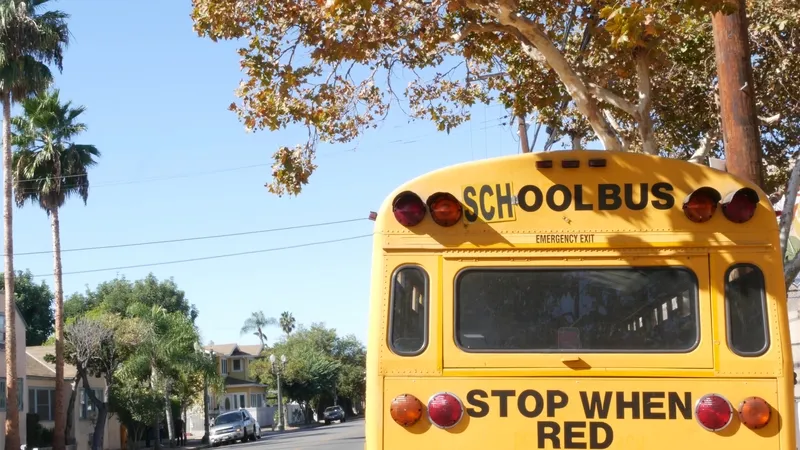
Conduent Transportation and Hayden AI are partnering to develop and deliver an automated technology solution aimed at discouraging car drivers from passing school buses whose 'stop arm' is extended.
The move is designed to improve safety for children who ride on buses, especially at pick-up or drop-off. It is illegal to overtake if the stop arm is down.
Available later this year, the solution will combining artificial intelligence and computer vision, using mobile cameras mounted on bus exteriors.
The cameras will activate when bus lights flash and the stop arm is deployed, automatically recording licence plate details of any car which does overtake.
A video clip of the violation will be sent via a secure cloud connection to law enforcement for evaluation, and citations or warnings can be issued.
The companies say it will result in more prosecutable violations, requires no effort from school bus drivers to operate and will be funded through fines - negating the need for upfront costs to school districts or schools.
Conduent and Hayden AI add that recent survey by the National Association of State Directors of Pupil Transportation Services found there are "tens of millions of violations per year across America where vehicles pass school buses, creating an unsafe situation for the children getting on or off buses".
Twelve US states have implemented school bus stop-arm enforcement technology, and legislation to allow its use has been introduced in at least 10 other states.
Conduent and Hayden AI agreed last year to collaborate on traffic safety solutions, including automated technology to improve the effectiveness of bus rapid transit lanes.
“Automated school bus stop-arm enforcement technology is a valuable tool for school districts and law enforcement agencies seeking to keep students safe,” said Mark Brewer, president, Transportation Solutions at Conduent.
Chris Carson, CEO and co-founder at Hayden AI, says: “Together, we will launch new technology that empowers us to achieve things we never thought were possible, and to solve problems that were previously too costly or difficult.”










